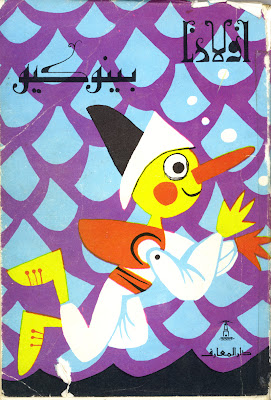“What kind of a name is that?” the voice coach asked at the end of the lesson. The name on the check he’d been handed by his student didn’t match the young actor’s European-sounding stage name.
The actor hesitated. He was fairly new in town and leery of any missteps. “Umm, my grandfather was Middle Eastern,” he said.
The actor said the room temperature seemed to drop. The teacher took him aside and spoke urgently. “Look,” the teacher said, “I see big things for you, but if you tell people this, you will not work in this town.” Recently, the actor landed a prominent role in a big-studio film. But he still feels compelled to keep his heritage under wraps. Only his closest friends know his ethnicity; he tells others that his parents are Italian, French, anything but the truth.
“I’m really proud of who I am, but I’m constantly having to lie about it,” said the actor, who didn’t want to reveal his name for fear that he would be relegated to playing terrorists, the new Arab acting ghetto.
[…]
But until that engagement becomes a full-fledged conversation, the enduring dilemma for Arab actors is whether to play terrorist roles. It’s often the only work available to them, but it can leave them feeling guilty or conflicted.
Tony Shalhoub, the Emmy-winning star of “Monk” who’s of Lebanese descent, recalled his first television gig playing a terrorist on a 1986 episode of “The Equalizer.” “I did it once, and once was enough,” he said.
Writer-director Hesham Issawi, an Egyptian, said the increase in the quantity of Arab roles hadn’t been matched by an increase in quality. “The roles are bigger, the scenes are bigger, the money is better. But it’s still a terrorist role.” He cited two exceptions: the terrorist recruiter character in “Syriana,” played by Egyptian Amr Waked, and Metwally’s part in “Munich.” Both were smart, nuanced militant roles, he said. “There’s a little more depth. There’s more to the characters, and they’re not stupid,” Issawi said.
Kanater says he doesn’t object to playing the bad guy. “I can play a villain. I played Caligula onstage.” What he resents is a steady diet of shallow, poorly written bad-guy roles. “You go for some Arab role and they say, ‘Can you do it again with a heavier accent?’ ” Kanater said.
Yasmine Hanani, a young Iraqi American actress, has played roles in “Over There” and “Sleeper Cell.” Her character in “Sleeper Cell” beheaded an FBI agent. “The thing about playing terrorists is they exist too. It’s real, even if it’s only half the story,” she said. “If I don’t do it, someone who knows less about my language and culture will.”
That terrorist dilemma has even been turned into comedy. The pilot episode of “The Watch List,” a Middle Eastern American show vying for a spot on Comedy Central, features a skit in which young Arab actors learn how to play terrorists. The students practice holding an assault rifle, begging “24’s” Jack Bauer for their lives and, finally, falling down dead. In the end, the teacher, played by Iranian American comedian Maz Jobrani, earnestly urges his students to learn how to play these roles “so that Latino actors won’t get them.”
The undisputed champion of the Arab terrorist role is Sayed Badreya. The burly, bearded Egyptian-born actor has played an array of menacing characters in a 20-year Hollywood career. He’ll appear with Robert Downey Jr. in next year’s “Iron Man” as an Arab arms dealer who kidnaps the hero. In 2003, he and Issawi made a short film called “T for Terrorist” in which an Arab actor, frustrated with endless terrorist roles, takes over a movie set at gunpoint.
Badreya recalls when he first arrived in Hollywood in 1986. “I couldn’t work. I was too handsome,” he laughs. “So I put on some weight and grew a beard, and suddenly I was working every day and playing the angry Arab.”
The classic treatment of Arabs in Hollywood remains, of course, Jack Shaheen’s Reel Bad Arabs.
.
